Camping can leave you feeling refreshed, especially after experiencing nature. However, there are instances where camping leaves you feeling drained and exhausted.
Camping makes you tired because it is a physical activity, different from your routine, requires planning and preparation, involves travel, and is also a very social activity. In addition, your body adapts to changes in the environment when camping.
There are ways to avoid camping fatigue. However, some reasons for it are part of what you should expect. Let’s discuss why and how they happen.
12 Reasons Why You Might Get Fatigued from Camping
Camping will require a lot of energy from you mentally, physically, and even emotionally.
Although it’s still a rewarding activity, many campers swear by it despite being exhausted. It can even be therapeutic.
It’s normal to feel tired when camping. However, the first day will likely be the most tiring, but it gets better from there.
1. Camping Requires Physical Effort
Camping is a physical activity right from the get-go.
You hike to your campsite, set up your site, and perform your planned activities, such as fishing, backpacking, trail running, kayaking, etc.
If you’re not used to this amount of physical activity at home, it can wear you out. Assuming you’re not in an organized camp, the setup takes more effort.
It’s called “roughing it” for a reason. However, you can add some balance by relaxing. Sit around a campfire and share stories with your friends and family.
This balance helps conserve your energy more effectively.
2. A Disrupted Routine Equals a Chaotic Mind
We are creatures of routine, whether we like it or not. Your morning, work, and evening routines leave us falling into a groove.
Camping removes us from our day-to-day activities and disrupts our routines. This can lead to mental exhaustion.
We now have different decisions to make and think about.
Thinking about too many things, such as what food and gear to pack and what activities to do, can cause decision fatigue.
The solution is to prepare beforehand, so things are more automatic when reaching the campsite.
For example, making a meal plan for each day means we don’t have to think about what we should eat first.
3. Lack of Planning and Preparation
Planning at the last minute can also take a toll on you. Imagine finally setting up camp only to realize you forgot your cookware or didn’t pack enough clothes.
Planning earlier in the week means you still have the weekend to purchase anything you need.
If you’re camping regularly, having a checklist ready will give you mental space and reduce stress.
4. You’re Camping for a Short Time
The first and last day of camping is possibly the most tiring because of the setup and packing. Imagine if you’re only camping overnight!
Or even just on the weekend. The setup and packing will take up a significant chunk of the day, regardless of how many days you stay in camp.
You won’t enjoy nature because your mind will be occupied by the “things you should do” or “would do next.”
If you’re an adventurer, you’ll aim to camp more often. This is especially possible if you’ve got time on your hands or if you have control over when you work.
Remember that quality is better than quantity with camping. A single stretch of 5-14 days may be better than multiple weekend camping outings.
5. Traveling is Generally Tiresome
I don’t know about you, but I hate packing. Just thinking about it exhausts me. With camping, you cannot get away from it.
Travel time will also take it out of you if you drive far to get to the campsite.
Start with mindful and relaxing activities after you set up camp. You can tackle more physical ones after rejuvenating.
This is also another reason why you’ll want to have longer trips.
6. Interaction with People Can Be Tiresome
If you’re on a solo trip planning to escape the bustling city, you may want to avoid organized camps filled with too many people.
But if you camp with family or friends, you’ll be socializing. You might also meet other campers, gain friendships, and do activities together.
These interactions can drain you. Even if you’re an extrovert, everybody has their limits.
When you sit around the campfire at night, you might also end up staying up late. This impacts your sleep and energy for the next day.
7. You’re Not Able to Sleep Well on the Hard Ground
Speaking of sleep, you may have trouble sleeping well on the ground. It can be hard even if you’ve got camping gear such as sleeping bags and inflatable pillows.
Sleeping outdoors means you’ll hear sounds, deal with varying temperature changes, and won’t have the luxury of a comfortable mattress.
You could try making your tent as comfortable as possible. However, this may be a hassle if only camping for a night. With longer camping trips, you can adjust.
Some campers sleep the entire day on the second day to make up for lost sleep the night before.
You can use earplugs, eye masks, and quilts to make your sleeping setup more comfortable.

8. Your Body is Too Busy Regulating Your Temperature
Our bodies adapt to the environment. However, these changes can be tiresome as they deplete your energy.
You can have a more regulated body temperature by dressing according to the weather.
When choosing what clothes to pack, look up what temperature you can expect at the campsite.
9. You’re Dehydrated and Missing Essential Nutrients
What type of food did you pack? Have you been drinking enough water?
Eating healthy and staying hydrated may be more difficult if you’re limited to what you’ve brought.
If you haven’t been eating the right food, you’re not taking in the right kind of fuel. This can make you tired (even if you’re not camping).
Pack healthy snacks to meet your body’s needs. Focus on energy-giving food as you’ll need them the most.
10. A Change of Environment is Both a Good and Bad Thing
If you plan to escape the city, camping is great. However, you’ll be stepping out of your comfort zone.
You’ll likely be more used to the routine if you’re always camping. But it can still get tiring, nonetheless.
You’ll have a different schedule and equipment and be with different people. Since you’ll likely be at different campsites, you’ll also be navigating differently.
This new environment can be a reset button. However, it can pose some anxiety that comes with change and uncertainty.
11. You Deal with Unpleasant Weather
Weather can add to a person’s stress. You can take precautions by scheduling camp on your preferred weather by referring through apps.
Of course, you can also choose to stay warm in your tent if a rainy day occurs. For me, the mud from the rain adds to the mental stress.
Let’s also hope the tent holds still in such weather.
12. Bugs Bug You
Bugs can negatively affect your experience. You can bring bug spray to prevent an onslaught or wear a lotion that protects you.
It can get especially troublesome when sleeping. A mesh net can protect you from mosquitoes, and you can place it on your tent or hammock.
These insects can disrupt sleep and leave you feeling tired the next day. Not to mention, it can mentally stress you out.
How to Enjoy Camping Without Feeling Tired?
Those are plenty of reasons why camping can physically and mentally drain you. However, there are ways to alleviate or prevent tiredness.
To avoid feeling tired from camping, you shouldn’t camp two weekends in a row. Switch up your camping spots for excitement, meditate, eat healthy food, and try glamping for less hassle. The key is to manage your energy wisely and find ways to recharge.
Camping is ultimately a relaxing and fun activity. To ensure you benefit, remember these things:
1. Don’t Camp Two Weekends Back-to-Back
As much as we want to take a break from our everyday lives, weekends are typically when we clean the house, buy groceries, and plan for the week ahead.
Camping two weekends consecutively will mean we’ll be behind on chores.
This could end up occupying your subconscious and add to the stress. We don’t want the future to take away our energy in the now.

2. Change Up Your Camping Spots
We typically don’t have much energy when we’re bored. And as exciting camping is, it can get boring if we always camp in the same spot.
It can get monotonous and take away the excitement of doing something different. Without this excitement, we lose the “high” and bursts of energy.
By choosing different locations, we do different activities specific to that location. We could choose to camp by a lake and fish, then choose a different forest to hike at.
3. Meditate
Short bursts of meditation can help increase your energy, which works best around nature. It boosts your mood and reduces stress and anxiety.
It’s especially helpful after being stressed from all the preparations and packing. After settling on your first day, you can meditate as you walk a trail to calm your mind.
This will prepare you for the activities ahead and can also be your “me time” before socializing and further using your energy.
4. Eat Healthy Food
Food is our fuel for energy. We’ll have more energy to spare if we eat fruits, vegetables, and proteins instead of junk food or instant meals.
When camping, we can choose to pack bananas, dates, or oranges. We can cook salmon or add sweet potatoes to the bag.
We can also choose olive oil as a healthier option. Aside from drinking water for hydration, we can eat watermelon or drink coconut water.
5. Opt for Glamping Instead
Maybe traditional camping isn’t for you, but you still want to camp.
You can try glamping instead. It’s a more “luxurious” form of camping without the “roughing it” part. Imagine it as a hotel in nature.
You’ll experience glamping pods (no more sleeping in tents) and have your toilet, running water, and electricity.
Others don’t consider this camping, but you can still reap the benefits of being surrounded by nature.
In Summary
Camping can tire you out because it’s a mental, physical, and social activity. It can also take an emotional toll on you due to the prep needed adding to the stress.
However, you can expect that the most stressful day will likely be the first day when setting up camp. You can relax from there on out.
In addition, any form of travel can be stressful and take up a lot of energy. There are means to alleviate this and help you manage your energy better.
You can avoid camping fatigue by balancing your activities and trying other camping options.
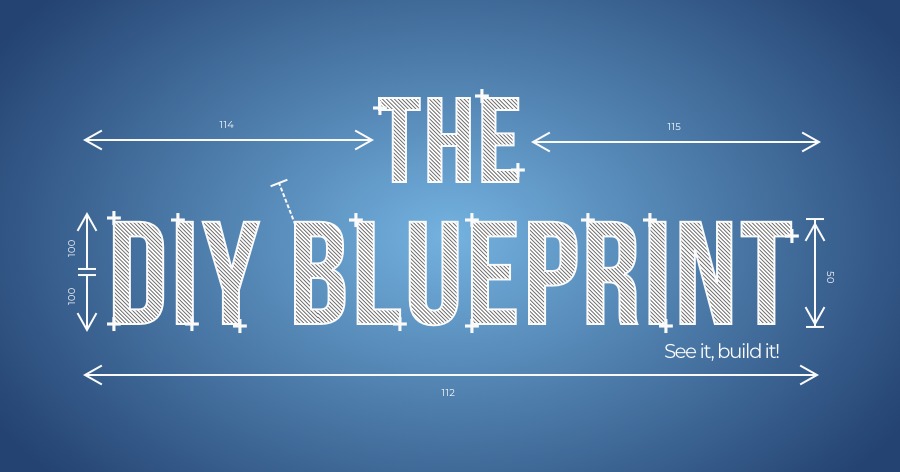


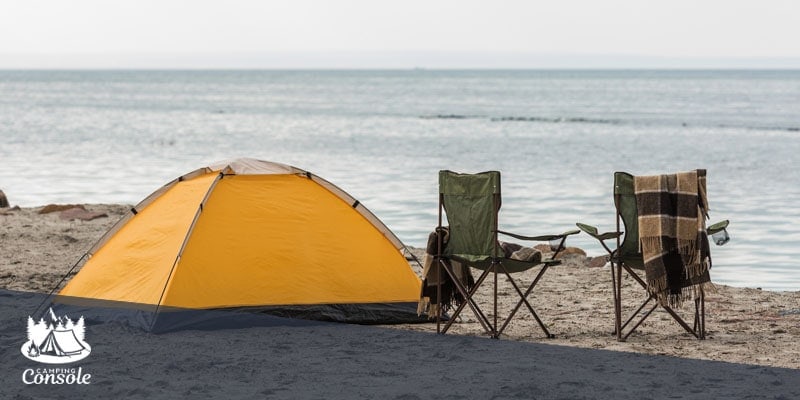
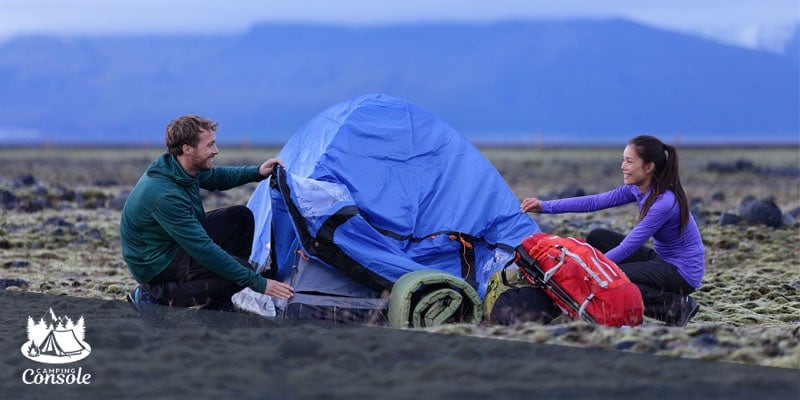
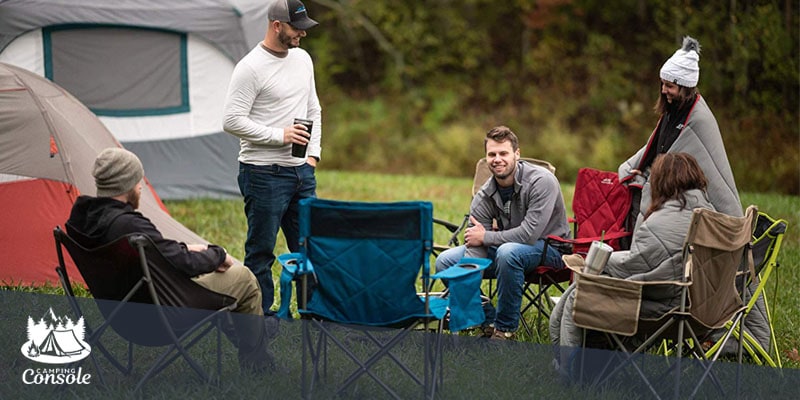
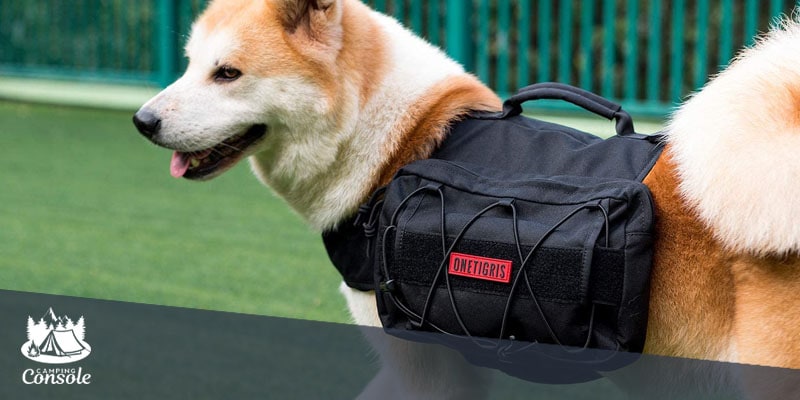


Add comment